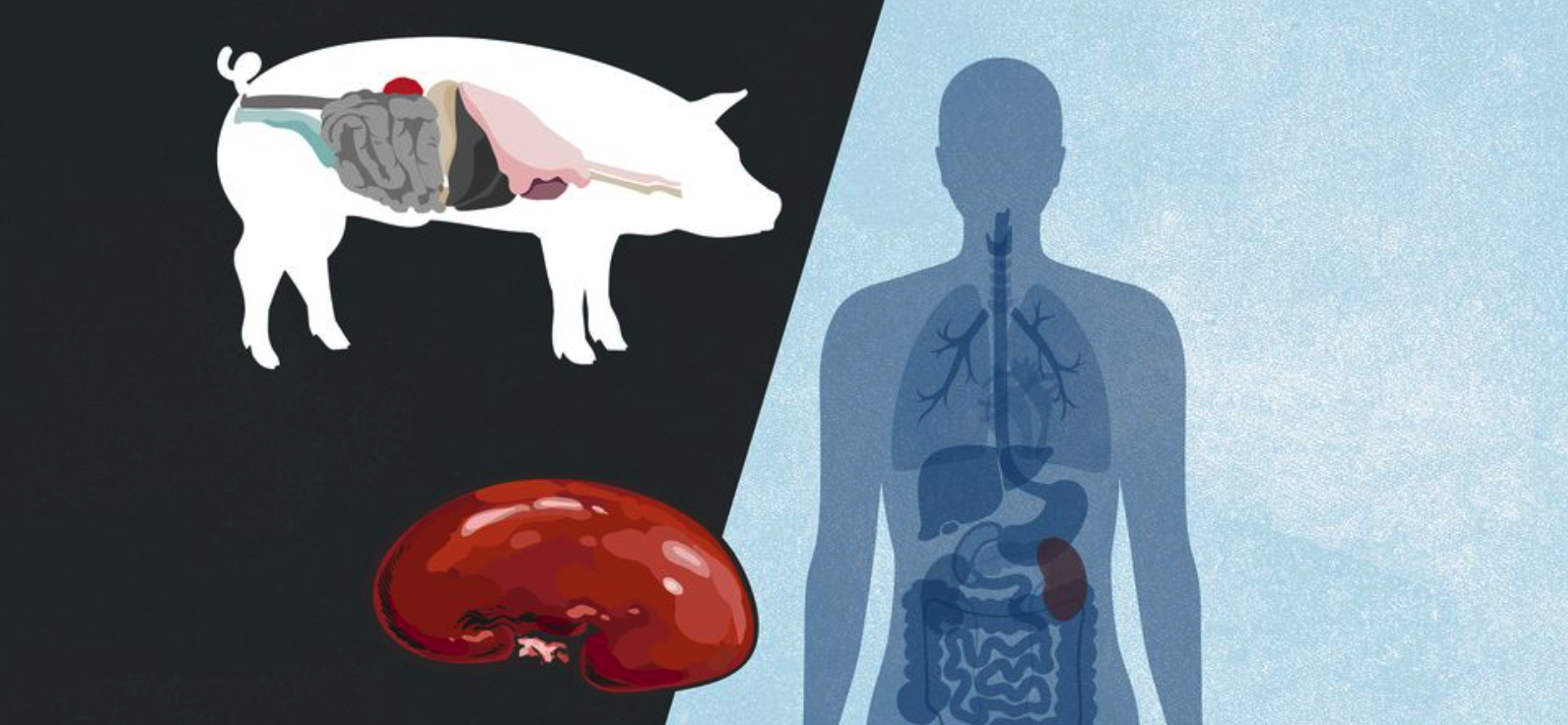Xenotransplantation

- 13 May 2024
Why is it in the News?
The first recipient of a modified pig kidney transplant passed away recently, around two months after the surgery was carried out.
What is Xenotransplantation?
- Xenotransplantation is the transplantation of organs from different species, such as pigs to humans.
- It is a procedure that involves the transplantation, implantation or infusion into a human recipient of either (a) live cells, tissues, or organs from a nonhuman animal source, or (b) human body fluids, cells, tissues or organs that have had ex vivo contact with live nonhuman animal cells, tissues or organs.
- Essentially, it is the use of animal cells and organs to heal humans.
- Xenotransplantation involving the heart was first tried in humans in the 1980s.
- The need for such a procedure was felt because of the significant gap between the number of transplants needed by patients and the availability of donor organs.
How Does Xenotransplantation Happen?
- The process of implanting a pig kidney into a recipient is akin to a standard transplant procedure, including the use of post-surgery immunosuppressant drugs.
- However, several critical additional steps are involved.
- Firstly, the chosen animal organ undergoes genetic modifications to prevent rejection by the human body.
- Using CRISPR-Cas9 gene editing technology, specific pig genes responsible for producing antibodies reactive to the human immune system are removed. Simultaneously, certain human genes are introduced to enhance the kidney's compatibility with human recipients.
- Even after the surgery, vigilant monitoring is essential to assess the body's response to the transplanted organ.
Why are pigs often used for xenotransplantation?
- Pig heart valves have been used to replace damaged valves in humans for over 50 years now.
- The pig’s anatomical and physiological parameters are similar to those of humans, and the breeding of pigs on farms is widespread and cost-effective.
- Also, many varieties of pig breeds are farmed, which provides an opportunity for the size of the harvested organs to be matched with the specific needs of the human recipient.
What are the Complications of Xenotransplantation?
- Rejection: Despite genetic modifications, the recipient's immune system may still recognize the transplanted organ as foreign and mount an immune response, leading to rejection.
- Infection: Xenotransplantation introduces the risk of transmitting infectious diseases from the donor animal to the recipient, including viruses and bacteria that may not typically affect humans.
- Immunological Challenges: The interaction between the recipient's immune system and the transplanted organ may trigger inflammatory responses, leading to complications such as inflammation and tissue damage.
- Ethical Concerns: Xenotransplantation raises ethical dilemmas related to animal welfare, genetic engineering, and the potential exploitation of animals for human benefit.
- Long-term Health Risks: The long-term effects of xenotransplantation on recipient health, including the development of chronic conditions and the risk of cancer, are still not fully understood and require further research.
